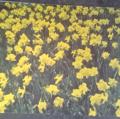Stephanie Jane recenzis The Book of Fathers de Miklos Vamos
Enjoyable historical fiction
4 steloj
My partner, Dave, read this book before I did and said it was ok, but he obviously wasn't overwhelmed by the story or the writing so I didn't rush to read it until now - some eighteen or so months after its purchase. At the end of the book, Vamos talks about his inspiration for the novel which is partly based on his own limited knowledge of his family history, embellished with the story of twelve historic Hungarian Everymen, and also with the influence of astrology because each Father in this Book Of Fathers embodies a sign of the zodiac. I wish I had known that prior to reading as I completely failed to pick up on the astrological aspect until it was pointed out to me!
I initially bought The Book Of Fathers because of its Hungarian author (WorldReads)! and with the intention of learning more about the country's …
My partner, Dave, read this book before I did and said it was ok, but he obviously wasn't overwhelmed by the story or the writing so I didn't rush to read it until now - some eighteen or so months after its purchase. At the end of the book, Vamos talks about his inspiration for the novel which is partly based on his own limited knowledge of his family history, embellished with the story of twelve historic Hungarian Everymen, and also with the influence of astrology because each Father in this Book Of Fathers embodies a sign of the zodiac. I wish I had known that prior to reading as I completely failed to pick up on the astrological aspect until it was pointed out to me!
I initially bought The Book Of Fathers because of its Hungarian author (WorldReads)! and with the intention of learning more about the country's beleaguered history prior to our Budapest visit in September 2017. (So I'm very late on that second goal!) Vamos tells the story of Hungary from 1705 to 1999 through the linked stories of twelve men, each the first-born son in the family line, who are almost all gifted with a supernatural gift. Obviously, as a feminist woman, the necessity of this gift being only passed to the first-born son did rankle somewhat. It is only a literary device so surely a first-born daughter or two could have been included? However, that gripe aside, The Book Of Fathers is an interesting and rewarding novel.
Featuring twelve overlapping life stories in the space of fewer than five hundred pages meant that I didn't get to know each man as well as I would have liked, however I did appreciate seeing how family traits repeated across generations and understanding how events which seemed random coincidences to the people involved had actually been foretold or seemed inevitable with the benefit of a reader's oversight. The central family is Jewish so persecution is a saddeningly common repeated theme across the three hundred years this novel encompasses. We see succeeding generations displaced or attempting to brave out bigotry against them. Names are changed as are official records of religious faith. I had an increasing sense of foreboding as the story headed towards the 1930s and, of course, this era turned out to be horrifying.
Women, as I have already mentioned, aren't the prime focus but I was pleased that Vamos doesn't relegate them all to wife/mother/daughter shadows. Instead there are forceful characters and successful businesswomen among their ranks. I didn't feel as though I was given a good sense of how the various towns and villages looked and I would have appreciated more details of the characters physical surroundings. I did like how Vamos portrays people though and could easily understand actions and motives, especially in the often intense situations we encountered.
Overall I did enjoy reading The Book Of Fathers and would happily pick up other Vamos novels when I saw them available. He has an engaging voice and a good way of enabling readers to care about people who come across as real and authentic. They are flawed and not always likeable, but I appreciated the time I spent reading their stories.

